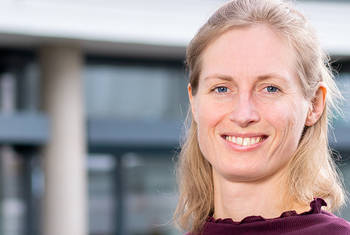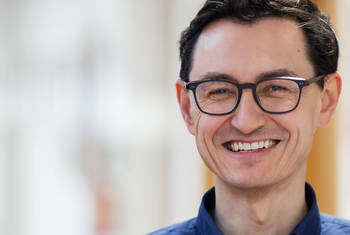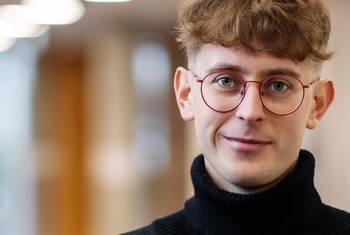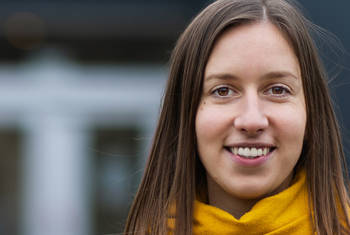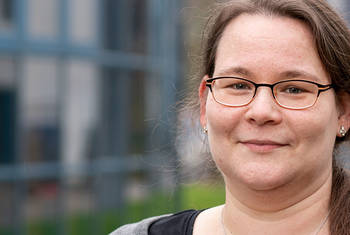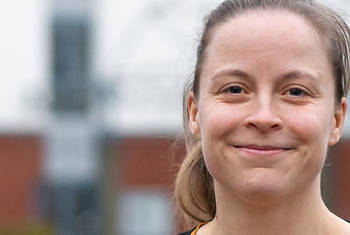Sofie Valk How Do Nature and Nurture Shape the Brain and What Does This Mean for Cognition?
Sofie Valk is the Otto Hahn Research Group leader for Cognitive Neurogenetics at the Max Planck Institute for Human Cognitive and Brain Sciences. She is also the Research Group leader for Cognitive Neurogenetics in the Institute for Neuroscience and Medicine (INM-7) at the Jülich Forschungszentrum. Valk’s research focuses on the interplay between structure and function in the human brain. An associate editor for Brain Structure and Function, Valk won the 2022 early career award from the DGPA e.V.
Area of Research
Neuroscience
since 2020
Otto Hahn Research Group leader ‘Cognitive Neurogenetics’
Max Planck Society (more details)
Max Planck Institute for Human Cognitive and Brain Sciences
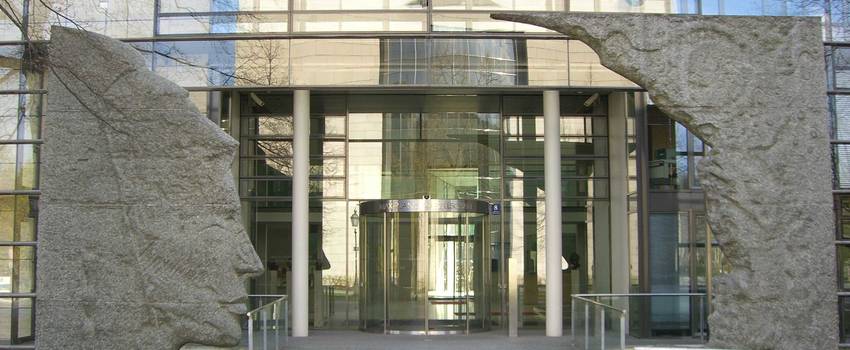 © Maximilian Dörrbecker
© Maximilian Dörrbecker
Max Planck Society
"The Max Planck Society is Germany's most successful research organization. Since its establishment in 1948, no fewer than 18 Nobel laureates have emerged from the ranks of its scientists, putting it on a par with the best and most prestigious research institutions worldwide. The more than 15,000 publications each year in internationally renowned scientific journals are proof of the outstanding research work conducted at Max Planck Institutes – and many of those articles are among the most-cited publications in the relevant field." (Source)
Institute
Max Planck Institute for Human Cognitive and Brain Sciences
The aim of the Max Planck Institute for Human Cognitive and Brain Sciences in Leipzig is to investigate human cognitive abilities and brain processes. The main focus of the research is on the neuronal basis of higher functions of the brain such as speech, music, and action. To this end, the scientists’ primary interest focuses on how these are perceived, processed, planned, and generated, as well as how perception and generation influence each other. They also investigate the plastic changes to the brain after strokes, and how these affect different cognitive abilities. The Department of Neurophysics, which was established in early 2007, is specifically concerned with the use and development of imaging methods for the neurosciences. (Source)
Map
Scientists have long debated the extent to which nature and nurture shape who we are. In this video, SOFIE VALK seeks to cast light on this debate. Employing methods including neuroimaging techniques, twin and genotype samples, comparison with primate brains and machine learning, Valk argues that both genetic and environmental factors shape the human brain, impacting human thoughts and feelings. Her research helps to identify biological rules describing how the structure of the human brain can support human cognition. Such rules have important applications to understand mental health and disease, and may help understand how brain and behaviour interact.
LT Video Publication DOI: https://doi.org/10.21036/LTPUB101062
Genetic and phylogenetic uncoupling of structure and function in human transmodal cortex.
- S. L. Valk, T. Xu, C. Paquola, B.-y. Park, R. A. I. Bethlehem, R. Vos de Wael, J. Royer, S. K. Masouleh, S. Bayrak and P. Kochunov
- Nature Communications
- Published in 2022


